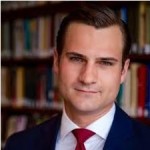
By NICHOLAS G. HAHN III, March 10, 2016
When the Service Employees International Union began to help organize adjunct faculty at Catholic universities, many expected school administrators to bless the effort as a blow for social justice. After all, religious higher education often comes tinged with progressive politics. But some school leaders, including those at Loyola University in Chicago, are bucking the pro-union stereotype.
Over the university’s objection, some non-tenure-track instructors at Loyola recently voted to join a local SEIU chapter certified by the National Labor Relations Board. During the unionization debate, Michael Sean Winters at the National Catholic Reporter had asked “how can Loyola invoke its religious character to defend against a union organizing effort when denying the right to organize runs completely contrary to that religious character?”
But when it comes to labor unions, Catholic Church teaching isn’t exactly doctrinal. There can be a legitimate disagreement about the role of unions without anyone running the risk of heresy. Mr. Winters’s question reflected a side of the debate that cites Pope Leo XIII’s hope in his 1891 encyclical Rerum Novarum that workingmen’s unions will “become more numerous and more efficient.”
On the other side are those like the Rev. Robert Sirico of the Acton Institute, who pointed out in a 2012 online post: “The right to join a union, in Church teaching, is rooted in the natural right of association, which of course also means that people have the right not to associate.”
Loyola’s Jesuits refused to pick a pulpit in that debate. They instead insisted that the university’s union opposition had less to do with Catholic social teaching than with religious freedom. Third-party organizers like the SEIU, Loyola’s interim president John Pelissero wrote to faculty in early January, aren’t on board with “our deeply rooted Catholic intellectual tradition.”
Religious institutions of higher education have long opposed attempts by the National Labor Relations Board to assert authority over their faculty and staff. Clerics say it is up to them to shape the nature of their institutions’ religious mission and how their faculty educate students.
The Supreme Court agreed and overruled the board’s claim of jurisdiction over faith-based campuses in a 1979 decision, NLRB v. Catholic Bishop of Chicago. The board’s jurisdiction over church-operated colleges, the justices argued, “would be a significant risk of infringement of the Religion Clauses of the First Amendment.”
The NRLB nonetheless continued to judge whether or not universities had “substantial religious character.” It abandoned that test in December 2014, and instead began probing whether a school’s faculty perform “a religious function in furtherance of its religious mission.” If not, send in the SEIU.
Other government groups also aspire to gauge the religiosity of faith-based institutions. In 2012, the Department of Health and Human Services drew up an exemption to the Affordable Care Act’s contraception-coverage mandate so narrow that Cardinal Donald Wuerl, the archbishop of Washington, D.C., quipped: “Even the work of Mother Teresa wouldn’t be qualified as religious.”
Union organizers now have their sights set on America’s largest Catholic university, DePaul University in Chicago. But the school’s president, Rev. Dennis Holtschneider, won’t let labor bureaucrats usurp his authority without a fight. Writing online for Inside Higher Ed in January, he noted that “whether or not a particular faculty member chooses to incorporate religion in his or her classroom overtly, the point is that it is up to the university, not the government, to decide what counts as religious perspective.” Ultimately, he wrote, “the freedom to determine what is or what is not religious activity inside our church is at stake.”
In recent years many faith-based schools have wrestled with questions about the religious and secular mix in their missions—and labor bureaucrats have noticed. Some schools have seemed to neglect their identity when hiring professors. “I’m not Catholic,” Alyson Paige Warren, a Loyola adjunct professor, told America Magazine in January, “and I don’t teach Jesuit spirituality.”
Pope Francis will have none of that ambivalence. In January 2014 remarks to a delegation from the University of Notre Dame, Francis insisted upon the “uncompromising witness of Catholic universities to the church’s moral teaching, and the defense of her freedom.” He reminded his visitors from Notre Dame—and by extension administrators at other Catholic colleges—to protect their schools’ “identity, especially in the face of efforts, from whatever quarter, to dilute that indispensable witness.”
If more religious educators prayed over that, labor bureaucrats wouldn’t stand a chance.
_______________________________________
Mr. Hahn, an alumnus of DePaul University, is the editor of RealClearReligion.org.


